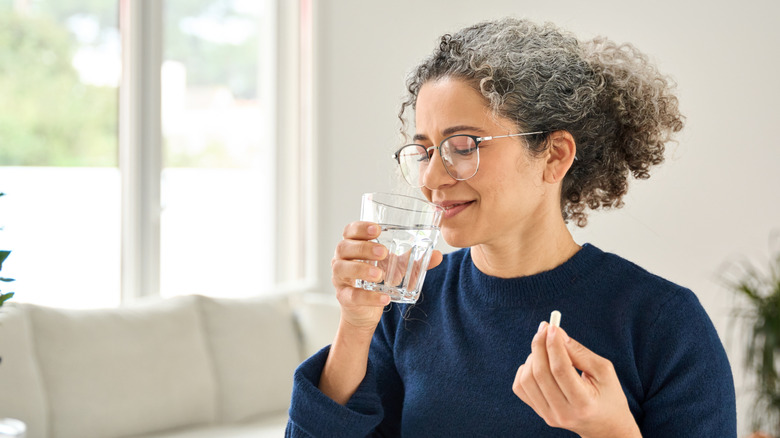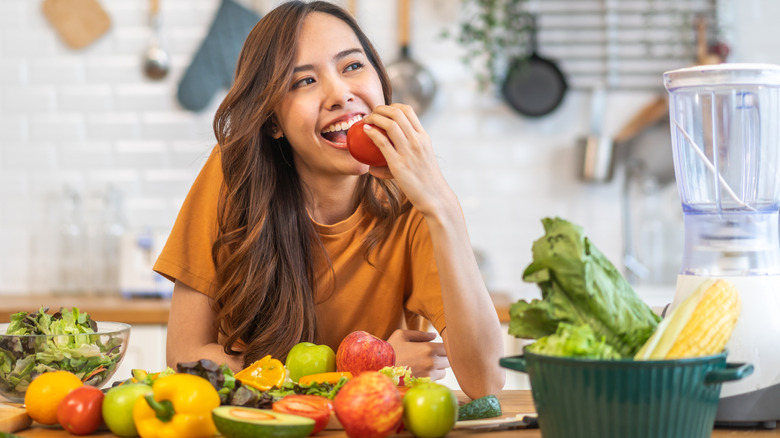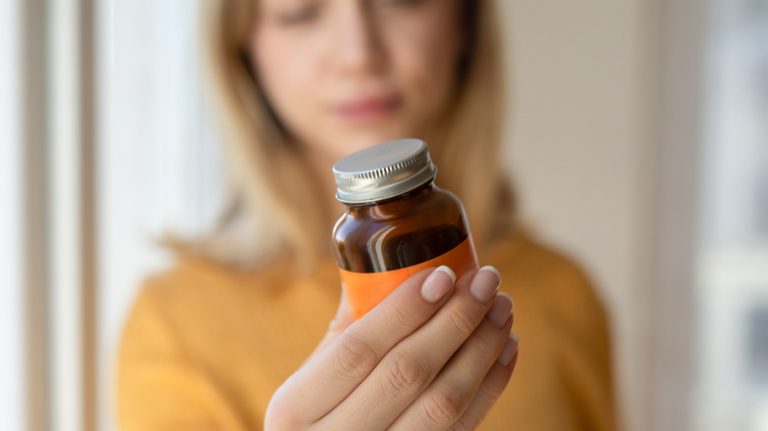We may receive a commission on purchases made from links.
Your eyes are exposed to a lot more than just what you see. From digital screens and sunlight to everyday environmental stress, your vision is constantly under pressure. While some changes to eyesight are unavoidable with age, others can be slowed or even prevented with the right nutritional support. Certain nutrients have been shown to help protect delicate eye tissues, support visual clarity, and maintain overall eye function as the years go by.
Whether you’re trying to reduce your risk of cataracts, preserve sharp focus, or simply take better care of your vision, we’ll look at three essential vitamins that offer serious benefits for your eyes. They’re well-researched, widely available, and — here’s the kicker — they also happen to be antioxidants, which, according to Rachel Gargano, MS, RD, CSSD, CBS, Chief Registered Dietitian at Live it Up, are a powerful way to support your eye health.
How antioxidants like vitamins A, C, and E can help support your eye health

Gargano told NCPIC that when it comes to eye health, antioxidants – which include vitamins A, C, and E, as well as other plant compounds such as carotenoids like lutein and zeaxanthin — are some of the most important nutrients.
What makes them so great for our eyes? “It’s fascinating,” said Gargano. “[A]ntioxidants absorb blue light, the kind that has been shown to damage the retina.” The phytocompounds also help protect against oxidative damage within the eye, she noted. “So, including more of these in your daily diet may help maintain eye health by reducing damage from UV light and free radicals, which may help slow down progression of some eye-related diseases,” said Gargano.
One simple way to ensure you are getting enough antioxidants to support eye health is to take a supplement like Ocuvite’s Eye Health Formula. An even better idea, however, is to get them from food.
How to get more eye-healthy antioxidants into your diet

Gargano said certain fresh fruits and vegetables are rich sources of vitamin C, especially bell peppers, citrus fruit, broccoli, and strawberries. However, it matters how you prepare them. “Keep in mind that vitamin C is water soluble,” she advised, “which means that it can easily break down in heat—so cooking reduces how much vitamin C you’ll get from that food.”
According to Medical News Today, beta carotene is the main source of vitamin A in our diets. This pigment, which provides many fruits and vegetables with their bright colors, is converted to vitamin A in the body. They suggest eating foods like sweet potato, carrots, red peppers, pumpkin, and squash to get plenty of this nutrient.
“Vitamin E is most abundantly found in nuts and seeds, like sunflower seeds, almonds, hazelnuts, and peanuts,” said Gargano.
While lutein and zeaxanthin are not technically vitamins, these antioxidants can be obtained from yellow- and orange-colored plants like bell peppers, corn, pumpkin, and summer squash, as well as leafy greens like kale and collard greens, she said.
“Interestingly, it can also be found in egg yolks,” added Gargano. “And while the amount of lutein in egg yolks is fairly low, it’s extremely bioavailable, so we can make the most of it when we eat eggs.”
“`




